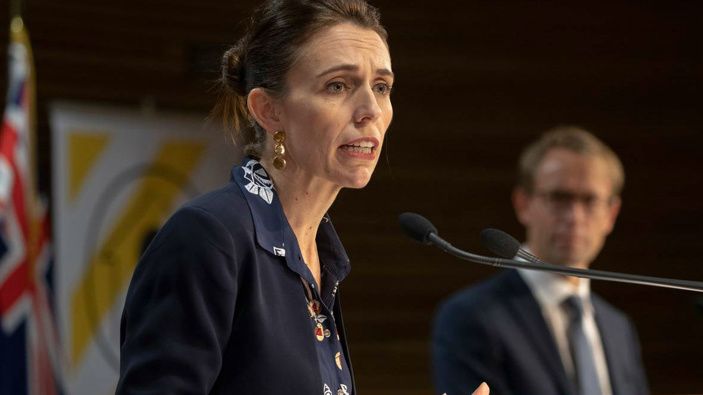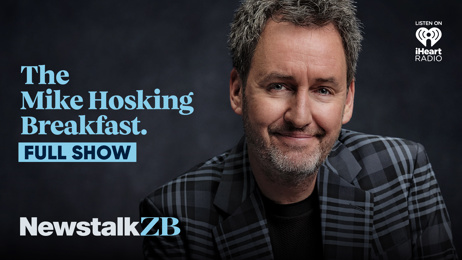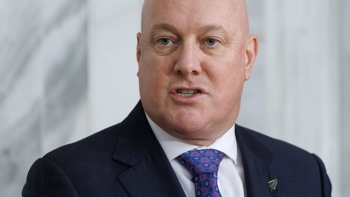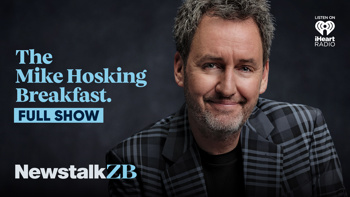Prime Minister Jacinda Ardern insists her Health Minister and health chief have a "collaborative and collegial" working relationship, despite comments in which David Clark appeared to throw a dejected Ashley Bloomfield under the bus.
Ardern said today she had seen the news footage that had gone viral last week of Dr Clark's comments, in which he pointed the finger of blame at Bloomfield for the failings in the management of Covid cases at the New Zealand border - as a crestfallen Bloomfield stood alongside.
She said Bloomfield and other health workers had worked exceptionally hard in the past few months and needed respite - but that there was also more to Dr Clark's media interview.
Ardern's comments come as the number of worldwide Covid cases has passed a grim new milestone - 10 million people have now suffered the virus, with 500,000 deaths.
And New Zealand has bounced back up to 20 active cases as a result of people returning from overseas - all of the cases are in quarantine, including one in hospital.
Speaking about quarantine bungles at a media stand-up last week, Clark said: "The director-general has accepted that the protocol wasn't being followed. He has accepted responsibility for that and has set about putting it right."
In the background, Bloomfield looks down briefly, appearing dejected at the comment. It has been variously described by commentators and viewers as brutal and cruel.
On Newstalk ZB today, Ardern was specifically asked by host Mike Hosking about David Clark's comments last week.
Hosking: "Did you look at the pictures last week of Ashley Bloomfield when your Minister of Heath threw him under the bus so publicly?"
Ardern: "I did. I did see that interview but I also know the full transcript of what happened in the interview and the elements that weren't included. That included Dr Clark talking about what an exceptional public servant Ashley was."
Hosking: "What did you see in Ashley's face?"
Ardern: "Well, the same that I've seen across people who are working in health generally. A group of people who have worked exceptionally hard across a number of months and we do have to give some respite to. They have been working incredibly hard. We have been criticsed for not directly blaming any individual person because this is a failure of our system and we have taken collective responsibility for that."
Hosking: "Did he deserve what we got?"
Ardern: "What Dr Clark said was no different to what Dr Bloomfield said only 48 hours before. No one here is placing blame at any individual's foot for something that was a systems failure and that we are all working really well collectively together to resolve."
Hosking: "You don't think it was galling that the most inept minister going was the one handing out the criticism?"
Ardern: "Again, you'll see that I have kind of disputed the framing that you have put around this whole thing, Mike. None of us are placing blame on individuals here because that wouldn't be right. We have had a system failure and we have worked hard to fix it. The report yesterday shows the efforts being made. Both Dr Bloomfield and Dr Clark have worked together exceptionally well. I have sat in meetings with these individuals frequently. I know the collaborative, collegial working relationship they have. Those individuals are part of a bigger team who have managed to get New Zealand into an uneviable position. We are doing better than most of the world right now, and it is because in no small part to their work they are doing alongside New Zealanders."
Ardern's comments come after the report revealed weaknesses in the New Zealand isolation system.
Reviewing the use of personal protective equipment such as face masks by arrivals to New Zealand will be a priority, says Air Commodore Darryn Webb after the release of the report
The report said returnees were not required to wear a mask at the airport, on transfer to their hotel or at check-in.
"The audit found there is inconsistent use throughout the whole process," he said at Parliament. "Simplifying and standardising what is a complex environment is crucial."
Returnees, border staff, airline and those working in the managed isolation and quarantine system were at greatest risk of picking up Covid-19.
The outbreaks in isolation hotels in Victoria, Australia, served as a reminder as to why all those people needed to be adequately protected.
Ardern said today there was no rule-book "on any of what we are doing". The mere fact New Zealand was quarantining people put it among only a handful of countries.
"The fact we mandate testing in those facilities makes us the most stringent in the world when it comes to our border," she told Hosking.
"Yes, as we have moved through we have changed and added on extra requirements to keep tightening those up. We have had a 73 per cent increase relative to April on the number of people coming in."
The pandemic was growing not slowing and New Zealand was doing "really well".
Of the 2159 people released from isolation without being tested between June 9 and June 16, 427 had still to be contacted, but there was not a clinical concern, Ardern said.
"They have had text messages, multiple phone calls, they had completed 14 days of quarantine, and cleared a medical check on top of that...those 427 people are still being asked to have a medical test."
Ardern said she did not plan to change immigration law to restrict the number of people coming home.
The border was open to citizens and permanent residents - authorities were looking at ways they could be managed. "Things like repatrition flights, you have a bit of control there and if you are starting to connect the issue of quarantine when booking on flights then you can start to manage your flow."
The number of people confirmed with Covid-19 is 20 after four more cases were confirmed on Sunday – all of them recent arrivals and in isolation or quarantine.
Since April 10, all arrivals have had to go into managed isolation for 14 days and if Covid-19 is detected or if they have symptoms, into stricter quarantine.
The report commended processes for entering quarantine but said processes for managed isolation needed improvement.
Of those arrivals, 53 cases had been detected, Housing Minister Megan Woods said at a joint press conference with Webb.
She said the system had done its job in stopping Covid-19 at the border but the room for error could be reduced to keep it out of the community.
The audit of managed isolation and quarantine was commissioned just over a week ago by Webb and was done by three senior staff of the Defence Force, Police and Corrections.
It concluded that:
- Adherence to Ministry of Health policy directive appears to be discretion at DHB level.
- Resources have failed to keep pace with increased volume of returnees.
- Policy has been announced in Wellington without prior consultation creating problems such as testing at days 3 and 12.
- There were no standard procedure for health checks.
- There was no requirement by returnees to wear PPE at airport, during transfer or in public areas of facilities.
- The system had limited understanding of future demand of facilities.
Arrivals are tested at day 3 and day 12 and they are not allowed out without a negative test.
The report says that the policy to implement day 3 and day 12 testing – announced on June 8 to take effect on June 9 – "was enacted without notice causing a significant bottleneck in the system and frustration".
It said consideration should be given to cohort demarcation and PPE use based on clinical advice, possibly delineating between cohorts 0-7 days and 8–14 days.
It concluded: "the team found that the system, whilst not broken, is under extreme stress and is not readily able to respond to increasing demands being placed upon it.
"The system would be improved with enhancements to staffing, structure and strategic planning as well as the implementation of a robust assurance framework.
"It would also benefit from greater management of the inbound traveller flow."
Webb also said many of the points in the report were being addressed.
"To say this is a finely tuned operation is an understatement.
"When fully implemented, we will make a good system better and stronger."
The system did what it needed to do in the immediate emergency response.
"Nonetheless it is currently under some strain and it needs to be scaled up to meet future demand. This is all doable."
Woods and Webb said neither of them was satisfied that compassionate exemptions from the 14-day isolation could be given.
Webb said among the things that needed strengthening was the transfer of people from isolation to the place they were being going and compliance with the terms of the exemption.
He said the Government needed to "own" the system of transfer rather than relying on the returnees to get themselves from isolation to their destination.
And compliance of conditions of exemptions was an issue.
"If someone doesn't come back to a managed isolation facility, it is a longer-term thing then we need to use a range of measures, probably physical, perhaps technical. We have a compliance team looking into those measures right now."
Woods said she understood the human and emotional need for people in those circumstances.
"I don't think anyone needs reminding about the stakes we are seeking to protect here.
This about protecting New Zealanders' health, protecting New Zealanders from any further outbreaks of Covid and also protecting the gains we have all made."
Woods said they were looking not only to increase supply of beds but to try to smooth demand as well.
They were looking at getting someone from Air New Zealand's operation areas into the all-of-government team to better understand inflows and manage demand.
While there were 35 arrivals checking into facilities today and 206 checking out, on Monday there would be 664 checking in and only 451 leaving.
There was an absolute right of New Zealanders to come home.
"We are needing to work through this to ensure we are not stopping New Zealanders' ability to come home but we are doing what we can to smooth demand."
Work was still being done on whether a co-payment could be required of returnees.
Asked whether returnees with addictions might be getting drugs smuggled into their facilities, she said there was no evidence of that.
MANAGED ISOLATION & QUARANTINE BY THE NUMBERS
- 22,832 returnees housed in isolation since April 10
- 53 confirmed Covid-19 cases in facilities or 0.2 per cent
- 5764 beds at 21 facilities is current capacity in four cities
- 4692 currently occupied
- 5877 beds is projected demand in seven days
- 6584 beds is projection to meet that demand
- 238 Defence Force staff involved in a workforce of over 600.
Take your Radio, Podcasts and Music with you










